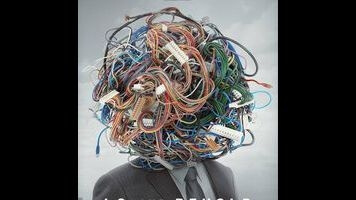With his easily imitated Teutonic accent, quotably severe worldview, and history of eccentric behavior, Werner Herzog was always destined, perhaps, to become the internet’s favorite filmmaker. But is the feeling mutual? Though he feeds his cult of personality with every cameo appearance and Kanye analysis, the most memed of master directors still identifies primarily as a luddite. That’s reason enough to be intrigued by Lo And Behold, Reveries Of The Connected World, in which Herzog—who claims to use the internet mostly just for email—turns his camera and philosophical gaze on the past, present, and future of digital interaction. Unfortunately, the sheer scope of the project largely negates any opportunity for an angle, personal or otherwise. NetScout originally conceived of the film as a multi-part educational series, and those origins are reflected in the final product: a daisy chain of short-subject docs, devoid of any central thesis and vaguely connected by stray flashes of the German great’s personality.
Lo And Behold begins, logically enough, on the campus of UCLA—the “birthplace of the internet”—where professor Leonard Kleinrock offers a peek inside the first computer to interact remotely with another computer, in the autumn of 1969. (In the history of human communication, it’s a site as important as any cave of forgotten dreams.) From here, Herzog toggles from subject to subject as though they were tabs on his web browser. The vignettes are of varying interest. Some, like a behind-the-scenes look at self-driving cars (they learn from each other’s mistakes and follow an Asimovian code of ethics!), possess a standalone fascination. Others, like a visit to a rehab clinic for gaming addicts, feel like excerpts from a longer, more complete study. (That particular topic has indeed already received the feature-length treatment.) It’s hardly shocking that these titled, numbered segments never quite cohere into a purposeful whole. The internet is a subject far too broad to be comprehensively explored in 98 minutes, even by one of our most adventurous documentarians.
Herzog’s technological ambivalence does provide some superficial organization, at least in the sense that it inspires a pro/con divide between those excited about the relentless forward march of progress and those wary of how interconnectivity has fundamentally reshaped civilization. Lo And Behold approaches the internet with the same mixture of wonder and dread that the director previously applied to pitiless nature, but the subject matter is inherently less cinematic. Rather than, say, the oil fields of Kuwait or the forests of Guyana, Herzog trains his lens on machinery, circuit boards, and screens—the kind of imagery that filmmakers have been struggling to make visually interesting since computers began dominating daily life. Likewise, the talking heads—scientists, tech moguls, ordinary people choosing to live an unplugged life—lack the oddball magnetism and extreme pursuits of Herzog’s most memorable interviewees. Which is to say, hearing a famous hacker talk shop isn’t as compelling as spending a few minutes with any one of the intrepid explorers of Encounters At The End Of The World, another of the director’s more scattered, episodic nonfiction efforts.
Would it be easier to accept such a diffuse take on this subject from someone other than Herzog? His byline creates expectations that most big-topic docs aren’t expected to meet. At the same time, Lo And Behold is only truly engaging when the director’s distinct voice asserts itself—either through offscreen interjection (“I would come along,” he tells Elon Musk, when the magnate explains that he’s having trouble convincing people to take a one-way trip to Mars) or familiar voice-over musings (“Could it be that the internet dreams of itself?”). In the film’s most disquieting chapter, the parents of “Porsche girl” Nikki Catsouras speak about being terrorized by anonymous trolls sending leaked images of their daughter’s grisly death. Herzog, in a kind of moral callback to a scene in his earlier Grizzly Man, makes a big show of not including any pictures of Catsouras (let alone the accident photos). But he also stages the conversation in a blatantly stylized way, enhancing the family’s discomfort for thematic purposes. Lo And Behold may well serve the intended educational purpose, its various strands opening up further dialogue about our plugged-in age. But in moments like that eerie, stilted interview, we get a glimpse of the better, weirder, more… Herzogian movie that might have been.
























![Rob Reiner's son booked for murder amid homicide investigation [Updated]](https://img.pastemagazine.com/wp-content/avuploads/2025/12/15131025/MixCollage-15-Dec-2025-01-10-PM-9121.jpg)
















